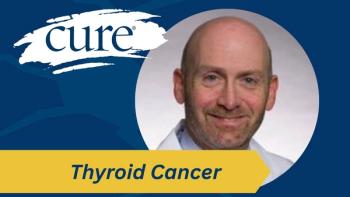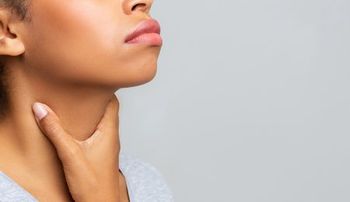
- Spring 2009
- Volume 8
- Issue 1
The Low-Iodine Diet
Patients may be asked to take steps to deplete their body's natural store of iodine so the thyroid will more readily absorb the radioactive iodine treatment and maximize treatment effectiveness
To maximize the effectiveness of radioactive iodine, patients may be asked to take a couple of steps to deplete their body’s natural store of iodine so that the thyroid will more readily absorb the treatment.
To that end, patients are instructed to temporarily stop taking synthetic hormone pills, such as levothyroxine, which can often leave patients feeling very fatigued and irritable. A physician also may prescribe a low-iodine diet, most typically for a couple of weeks prior to treatment.
Stephanie Lee, MD, PhD, associate chief of endocrinology, diabetes, and nutrition at Boston Medical Center, says people will typically do fine if they follow several key guidelines:
>
Use non-iodized or kosher salt
>
Don’t consume dairy products, including milk, yogurt, or cream
>
Steer clear of seafood and seaweed
>
Avoid eggs, or at the very least egg yolks
>
Eat homemade bread if possible; otherwise, limit bread to one slice daily
Reading food labels to search for hidden iodine is helpful, but not universally reliable, Lee says. The Boston endocrinologist helped to author a study, published in 2004 in The Journal of Clinical Endocrinology & Metabolism, which scrutinized iodine content in bread. The researchers found that the amounts listed on the labels weren’t necessarily reflective of the quantity within the package.
For dietary details, the Thyroid Cancer Survivors’ Association provides a low-iodine resource on its website at
Articles in this issue
over 16 years ago
The Final Journey: The Life and Death of Judy Abernathyalmost 17 years ago
Web Exclusive: What Is a "Good Death?"almost 17 years ago
Web Exclusive: Resolving Your Own Deathalmost 17 years ago
Web Exclusive: Understanding Hospicealmost 17 years ago
Web Exclusive: Find a Clinical Trial That's Right for Youalmost 17 years ago
Web Exclusive: Find a Clinical Trial That's Right for Youalmost 17 years ago
Web Exclusive: Eulogy for Dr. Phillip Bermanalmost 17 years ago
Web Exclusive: A Granddaughter's Eulogyalmost 17 years ago
Calming Cancer Painalmost 17 years ago
Excerpt: When Hormone Therapy Can Stress You Out



